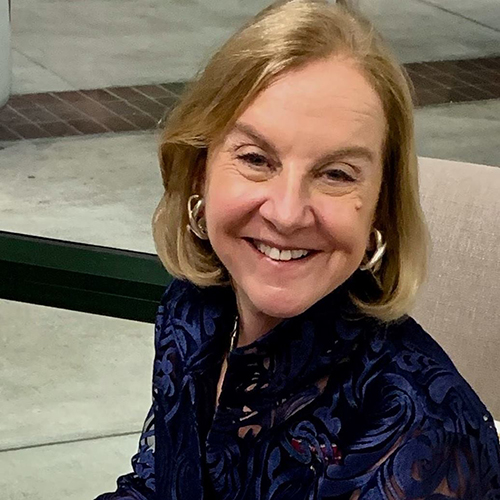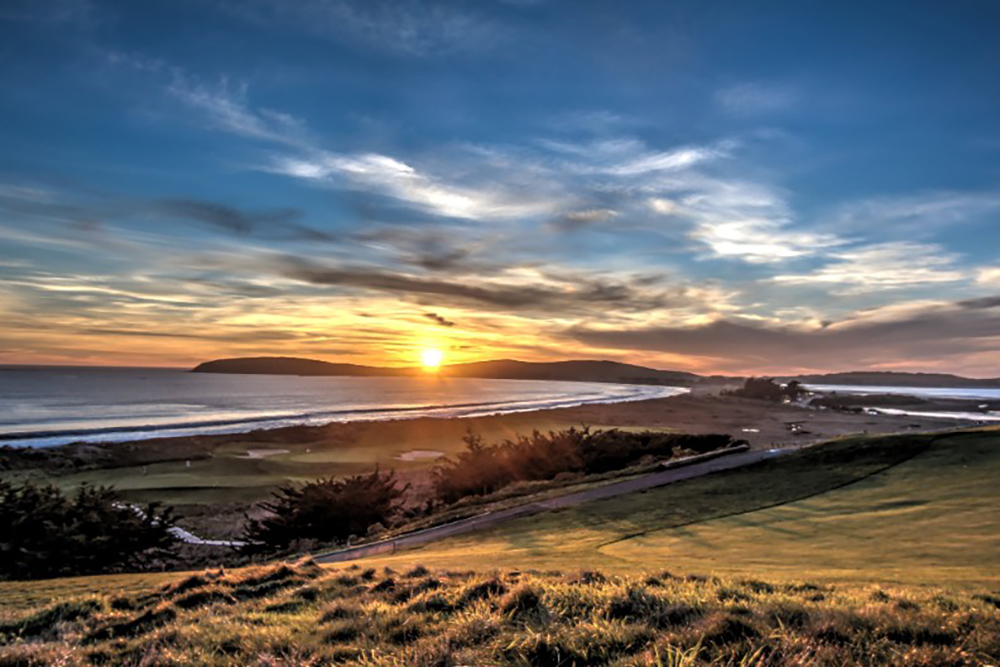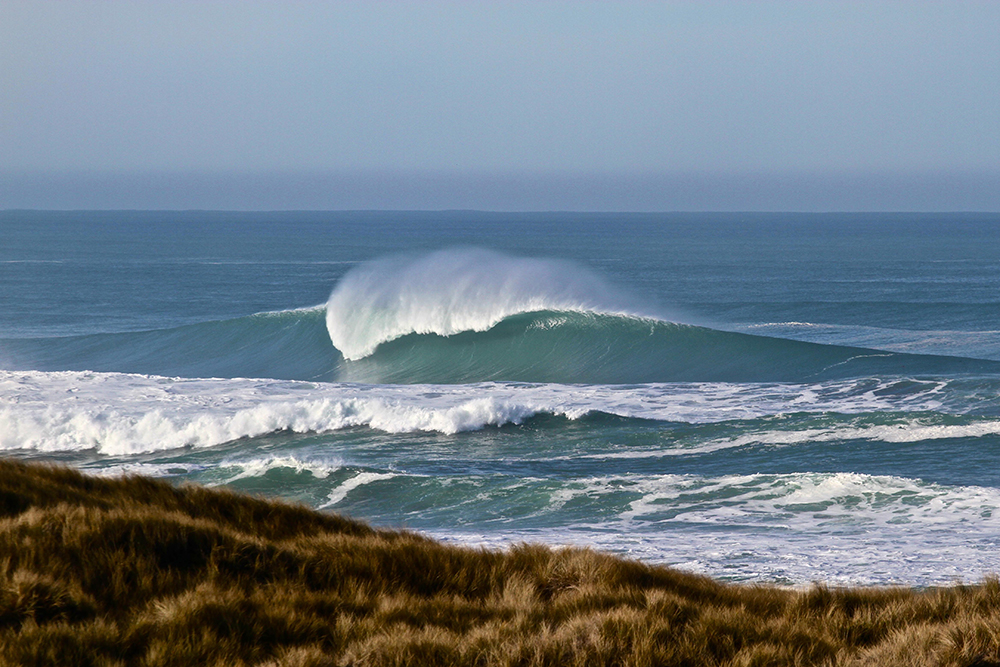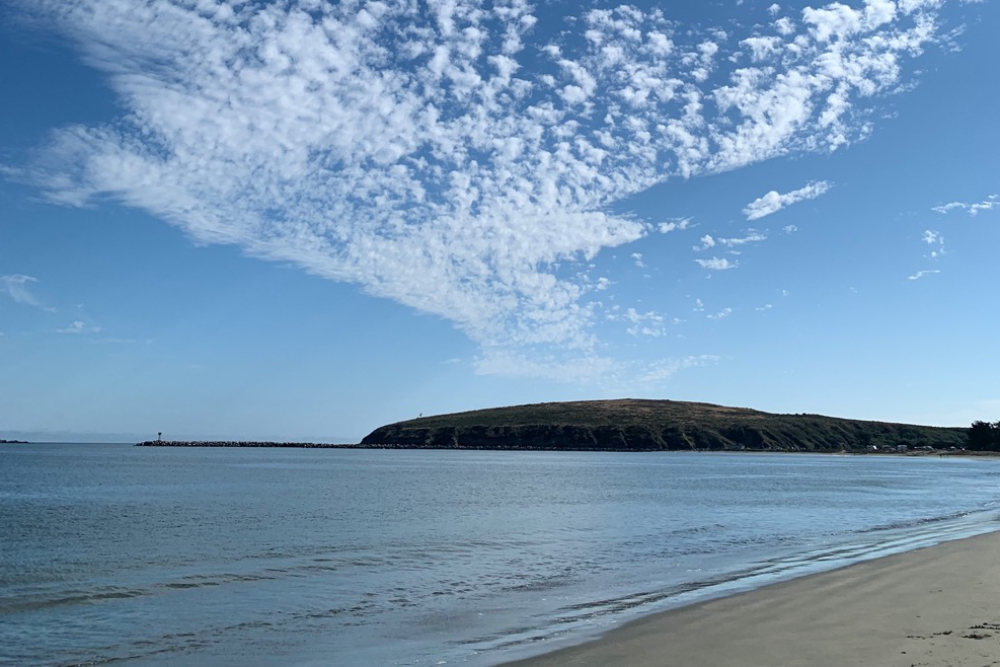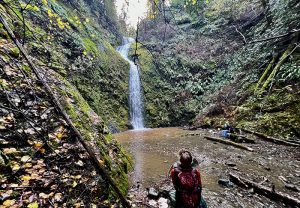
When you learn a language, a linguist once told me, you see with new eyes, listen with new ears, speak with a new tongue. In essence, you grow a new brain. As I began my coastal wandering, waves of words—some entirely new, others familiar but with different meanings—washed over me. I quickly realized that my new brain would require a new vocabulary.
From an oceanographer, I acquired “pelagic” (open water) and “benthic” (ocean floor). A master tracker taught me that deer “pronk” (jump on all fours when startled) and California bears “estivate” (enter a semi-stupor). With binoculars pointed skyward, hawk-watchers showed me how raptors “kettle” (circle in an upwind). As we walked along a bayside strand of “forbs” (flowering plants), a botanist demonstrated “scurfy” (pebbled with tiny grains) by rubbing sea grass on my palm.
A commercial fisherman enriched my vocabulary with an entire lexicon for salmon, an “anadromous” species that switches from fresh to salt water and back again and matures from egg to “alevin” to “fry” to “parr” to “smolt.” His first job on a boat was as a lowly “pinhead,” the tiniest of anchovy babies.
Scientific names seem especially daunting, but their origins fascinate me. When I first spied harbor seal moms at the Russian River estuary, I melted at the big-eyed adorableness of their pups but knew nothing about their biology. Volunteer training with the Stewards of the Coast and Redwoods taught me that seals, along with sea lions and walruses, are “pinnipeds”—from the Latin pinna and pedis for “feather-footed.” Now when I see their heads bobbing above the waves, I think of these marine mammals gliding through the sea on paddle-like wings.
Nature itself speaks in ways that go beyond words. I learn this lesson on my first “wander” with a self-described nature educator. As we cross scrubby dune grass into a clutch of cypresses, my guide signals a halt. In a hushed voice, he explains that we are at an “ecotone” where two ecosystems meet, a lively intersection for animals with different habits and habitats. Native trackers, who moved across the land like a breeze, would pause to honor each new space and offer a greeting or appreciation.
“What’s the first word that pops into your mind?” my companion asks.
“Dimmi!” I blurt, immediately recognizing the absurdity of uttering the Italian for “tell me” on a remote coast in California. I rush to explain that after studying the language for decades, Italian words sometimes spill out of my brain and onto my tongue. “Dimmi!” is what storekeepers say when you enter an Italian shop, what Leonardo scribbled when he was breaking in a new nub for his quill.
“So what do you want to know?”
“Tutto—everything!”
“Nature is telling you everything,” he says softly. “To understand, you have to see more, hear more, appreciate more.”
I’m trying. Eyes wide open, ears perked, senses on high alert, I keep stretching my new brain as I wander—but I still lapse into Italian.
“Dimmi!” I entreat when I crouch at the entrance of a sea cave, peer into a crystal-clear tide pool, or breathe in the mist of a secret waterfall. Tell me. Tell me your story. Tell me everything. Fill me with the wonder of you.


